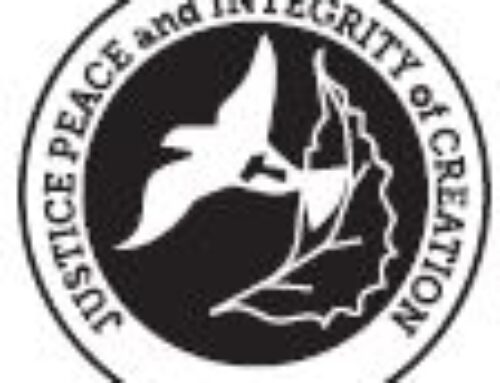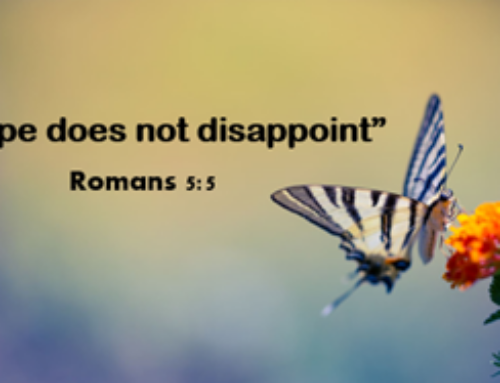
Carolyn Townes, OFS, national animator for Justice, Peace and the Integrity of Creation
Matthew (13:54-58) recounts how, when Jesus came to his hometown and began to teach in the synagogue, people were as- tounded, and even took offense. They knew him as the carpenter’s son; not this new Jesus.
“This image of him in the synagogue did not fit the Jesus they had in their heads,” Carolyn Townes, OFS, told National Chapter attendees. They couldn’t reconcile the image of the Je- sus they knew with the one standing before them, said Townes, national animator for Justice, Peace and Integrity of Creation and a member of the International Commission for JPIC.
It reminded her of a quote by George Bernard Shaw: “The only man I know who behaves sensibly is my tailor. He takes my measurements anew each time he sees me. The rest go on with their old measurements and expect me to fit them.”
A person in the latter case preserves an image as a way of keeping his thoughts in harmony. The harm in this selective perception is that it becomes the basis of bias; that is, a preference for or against a group or individual, Townes said.
“It can be positive or negative. Conscious or unconscious. Assumptions and stereotypes. It can be based what we iden- tify as labels — skin color, ability, age or gender preference.
“Unconscious bias is far more prevalent than conscious prejudice and is often incompatible with one’s conscious val- ues,” she noted. This makes bias in oneself harder to identify, especially when working under time pressure or in a per- ceived threatening situation, Townsend said. In those cases, we react automatically with what we already know. As a result, we use shortcuts based on prior knowledge to process the 11 million pieces of information coming at us at any one time.
For example, Townes used some sentence starters that members of the audience automatically answered:
“An eye for an…”
“What goes around…”
“Fight fire with…”
“Better late than…”
“An apple a day…”
“Birds of a feather…”
“Let sleeping dogs…”
Responses to these are part of the millions of bits of information that are stored in our subconscious mind.
“We have heard them so many times, we don’t even need to think about the answer,” Townes said.
This type of thinking can lead to snap judgments while making important decisions.
“This leads to hiring someone based on our personalpreference and not on the candidate’s skill. It also causes us to cross the street when we see someone as threatening.”
Our minds formulate shortcuts to make it easier and faster to make decisions. If these are based on biases, preferences against groups or individuals, they need to be changed.
“Two things I want you to know about biases. Number one, everyone has them. Number two, they can be disrupted or changed,” Townes said.
How do we reverse our biases?
“Ask yourself: Why am I so dead set on maligning this person? What if I took an opposite view?”
First, pause. “As Franciscans, we are called to pray for right judgment and right decision. Before you make a judg- ment based on that subconscious judgment in your head, take a Franciscan pause. We form our impression of a person in that first millisecond. Remind yourself that you are aware of your first impression.”
“Second, when you know you already have an image in your mind, make yourself come up with two pieces of opposite information about that image.”
“Third, define your inner focus. Once you become aware of your bias, do your counter activity until it becomes habitual. Do it mindfully, with prudence, caution and right judgment.”
“Fourth, be curious and cultivate conversations. Conversations help us find what we have in common,” Townes said.
Townes cited Article 19 of the Rule as a way of changing our bias. She calls it “taking a Franciscan pause.”
“Mindful that they are bearers of peace which must be built up unceasingly, they should seek out ways of unity and fraternal harmony through dialogue, trusting in the presence of the divine seed in everyone and in the transforming power of love and pardon…”




Thank you for this clear review bringing our sister Carolyn Townes’ thoughtful, challenging, wise remarks to a wider audience